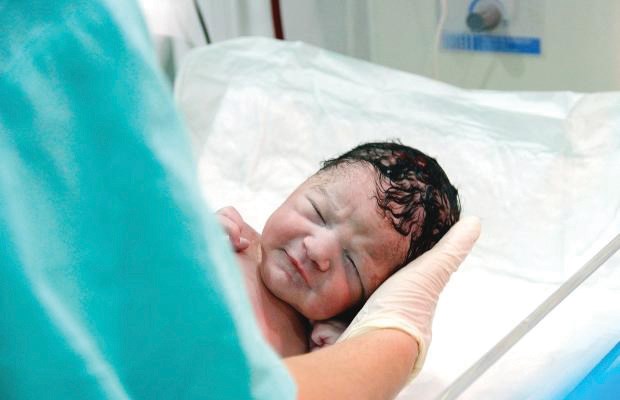The person in charge of overseeing care at Richmond Hospital’s maternity ward says Canadian citizens and residents expecting to give birth shouldn’t be concerned about being bumped by a foreign national.
Instead, Diane Bissenden, director of population and family health for Vancouver Coastal Health (VCH), said all patients, including so-called “birth tourists,” should expect quality care in the ward, which is known to be one of the best in the province.
She added that there is no evidence that non-residents, who now account for about one in six births in the hospital, have directly bumped Canadians to other hospitals.
Bissenden said the hospital doesn’t discriminate between private-paying non-residents and taxpaying residents.
“When people enter to receive care we provide the same levels of care to people who require it. Staff don’t define level of care based on people’s abilities to pay, or where they come from,” she said.
Last fiscal year, to March 31, out of the 1,935 births at the hospital, 305 were to non-residents (almost one in six). In the prior year (2014/15), out of 2,185 births, 339 non-residents gave birth — which set a new record at the time.
Bissenden said during the past 18 months, she has documented 28 patients who have been transferred to another nearby hospital. Of those, 14 were because of space and staffing issues.
“So, it’s not very many,” said Bissenden.
“When there are surges, sometimes we have to transfer people to the other hospitals,” she said.
With 15 birthing beds, Bissenden said the hospital is almost always near capacity.
Statistics Canada initially told the Richmond News non-resident births were not tracked. On Friday, a spokesperson stated 2012 data had been accrued from health authorities across Canada, noting there were 699 recorded births by non-resident mothers in that year.
Bissenden said her guess was as good as anyone else’s as to why Richmond has such a high rate of non-residents giving birth.
She speculated it is because Richmond has Chinese-speaking staff and physicians, who understand Chinese culture (Bissenden estimated, by tabulating medical forms last year, that about 98 per cent of the non-residents giving birth are Chinese nationals).
“If you were to have a baby, where would you feel the safest? Probably somewhere someone can understand you.”
As for payments, Bissenden said the repayment rate is “very high,” at about 95 per cent. The hospital asks non-residents to pay a $7,500 deposit for a regular birth and $13,000 for a C-section birth — roughly three times the cost of an insured resident.
If every non-resident birth was a regular delivery (non C-section), the hospital would have generated an estimated $1.7 million in net profit in the last fiscal year. The money is put into a general revenue account for VCH.
Non-residents could also be showing up in Canada to obtain better medical service. Bissenden said the hospital has a high vaginal birth rate, an indicator of excellent care.
Another reason for flying to Canada could be automatic Canadian citizenship for the newborn.
Last month, a petition was penned by Richmond resident Kerry Starchuk to put an end to “jus soli” citizenship. Petition e-397 now has more than 4,500 signatures.
Although non-residents are shown to leave the hospital after birth one day earlier than their Canadian resident counterparts (who stay about two days, on average), Bissenden said there are no indicators that lead her to believe the health of the babies is in jeopardy. Although non-residents are also not afforded visits by public health officers, said Bissenden, their re-admission rate is so low it’s nearly negligible.
“It would be unusual to see a non-resident come back,” she said.
“I can’t speak if they’re putting themselves at risk,” she said.



